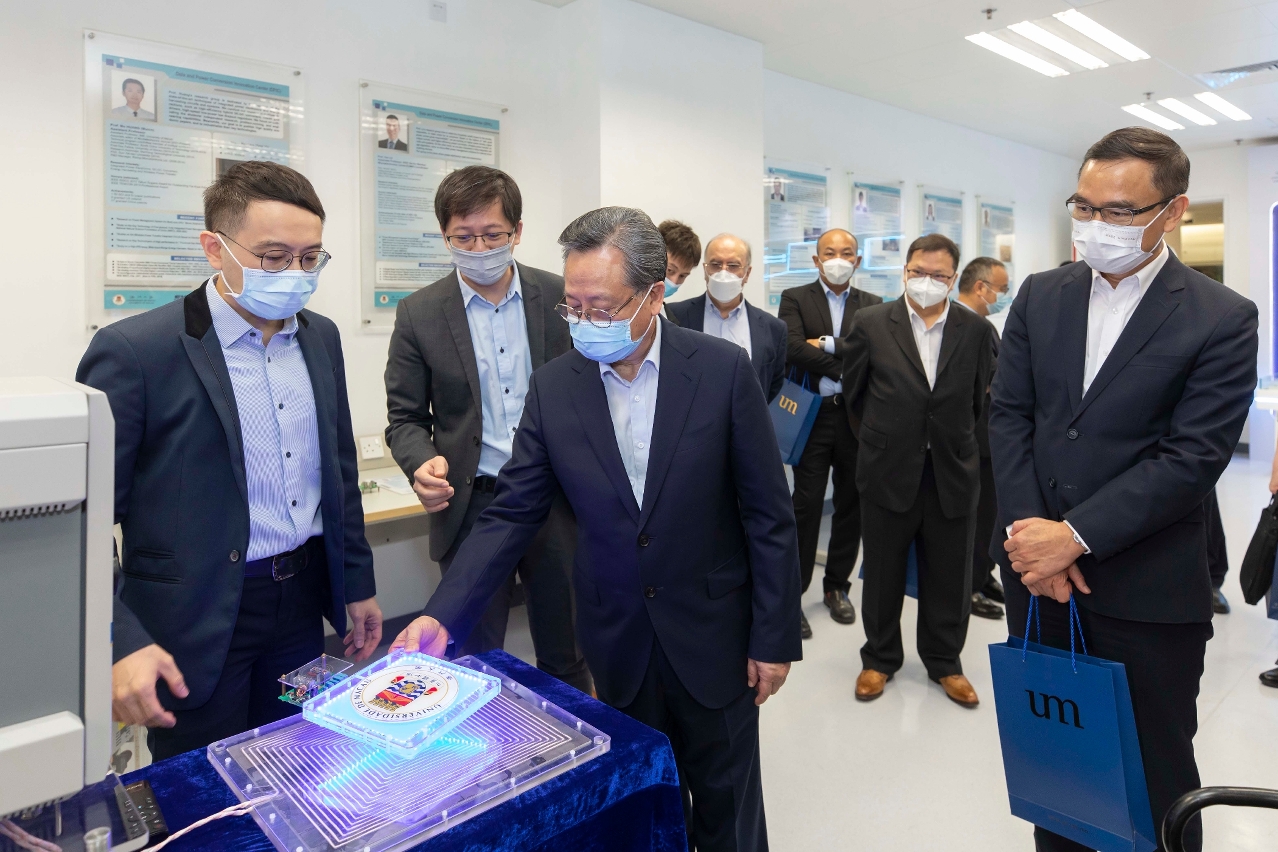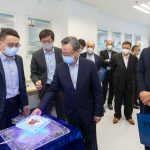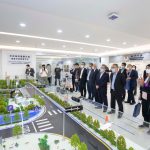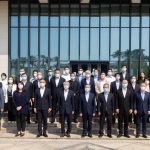 Members of the delegation visit a state key laboratory
Members of the delegation visit a state key laboratory
A delegation formed by members of the Legislative Assembly of Macau today (28 October) visited the University of Macau (UM). During the visit, they exchanged ideas with faculty members and students from various laboratories to learn more about the university’s latest developments, scientific research results, and industry-academia collaboration. They also spoke highly of the university’s development and research innovation.
Led by Kou Hoi In, president of the Legislative Assembly of Macau, the delegation was warmly received by UM University Council Chair Lam Kam Seng, Rector Yonghua Song, and Vice Rectors Michael Hui, Rui Martins, Ge Wei, and Xu Jian. During the visit, Lam expressed his gratitude to the central government for approving the establishment of UM’s new campus on Hengqin island and authorising the Macao SAR to exercise jurisdiction over the new campus, which laid a solid foundation for UM’s development into a first-class university.
Song told the guests about UM’s recent developments in various aspects, including academic affairs, research, and talent development, as well as the university’s development plan for the next five years. According to him, there are four reasons that make UM a unique university, namely its location in a special administrative region, its special mission, special status, and a unique model of education. The Outline Development Plan for the Guangdong-Hong Kong-Macao Greater Bay Area and The Master Plan of the Development of the Guangdong-Macao In-depth Cooperation Zone in Hengqin have provided a lot of room for higher education cooperation and development in the Greater Bay Area. In line with the development strategies of the country and Macao SAR, UM will strive to scale new heights through enhancing research and innovation development, strengthening education and talent development, and providing more high quality services for the local community.
Members of the delegation visited the State Key Laboratory of Internet of Things for Smart City (SKL-IOTSC), the State Key Laboratory of Analog and Mixed-Signal VLSI (SKL-AMSV), laboratories of the Institute of Applied Physics and Materials Engineering (IAPME), the State Key Laboratory of Quality Research in Chinese Medicine (SKL-QRCM), and laboratories of the Faculty of Health Sciences (FHS). They all spoke highly of UM's development and research achievements in recent years. They expressed hope that the university would continue to integrate technological innovation with the socioeconomic development of Macao and would make use of the policy advantages for industrial development of the Guangdong-Macao In-depth Cooperation Zone in Hengqin to facilitate the transfer of outstanding research results at the university, in order to contribute to moderate economic diversification of Macao.




